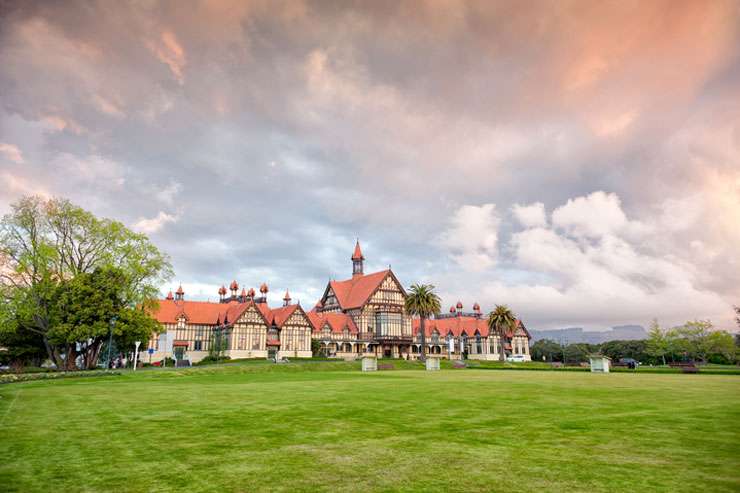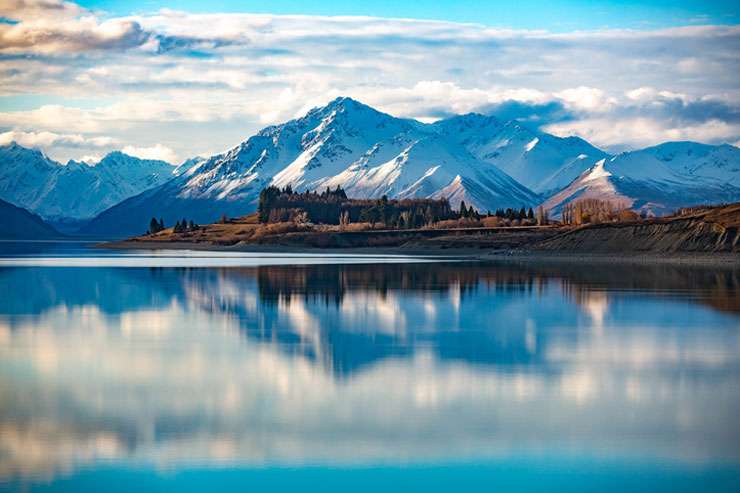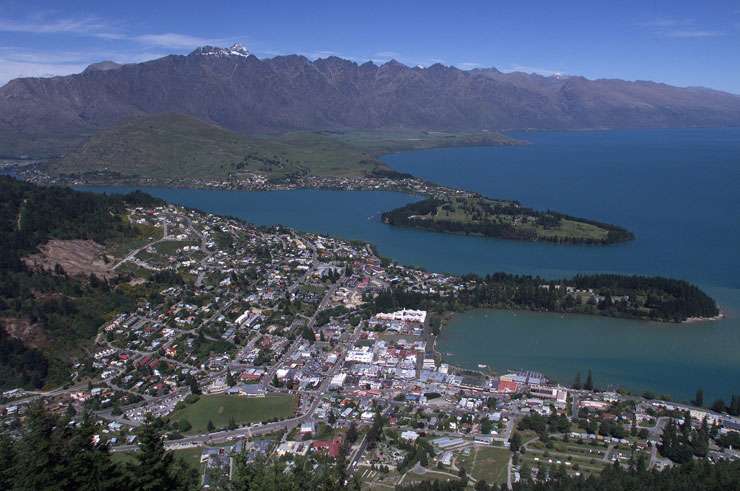Tourist towns have noticed the absence of Aucklanders more than the absence of international tourists, after the country’s biggest city went through a second lockdown to deal with re-emergence of Covid 19.
While the loss of tourists from overseas has impacted local economies through lack of spending and job losses, some towns report the big jump in Kiwis holidaying instead has helped to compensate - and some agents report a lift in enquiry from domestic visitors.
READ MORE: Find out if your suburb is rising or falling
In places like Rotorua the lack of Auckland investors, who were not allowed to leave Auckland city limits for much of August, has been good for local first home buyers who are taking the chance to buy.
Start your property search
In Kerikeri, the market is going well, says Barfoot and Thompson branch manager Hayden Clark.
“To be honest, it’s probably the best time ever to sell in Kerikeri in history. The median house price is up over $700,000,” he said.
“There’s a lot of urgency at the moment. A lot of the high-end spec houses that were sitting around and typically quite a tough sell have started to sell. We’ve had several of them under contracts and one of them was a spec house that was advertised at $1.2 million and it sold at the asking price with a triple multi offer. Before Covid-19 it had been on the market for about six months without any real genuine inquiry.”
Less competition
While about 50 per cent of buyers are still locals, the town has noticed the absence of Auckland buyers. “In the last couple of weeks, we’ve really noticed them not being able to come up and look at properties because they were stuck in Auckland.”
Out-of-towners have also kept visitor accommodation full in Kerikeri and nearby Paihia through winter. “We’re seeing a lot of people getting out of Auckland and going for a bit of a holiday and then realising they’ve had a lot of time to think during lockdown and are saying ‘hey, why don’t we move to somewhere like Kerikeri?’”

Rotorua’s historic Bath House and Museum. First home buyers in the city have been out in force recently. Photo / Getty Images
In Rotorua, first home buyers have been getting a good crack at the market because Aucklanders haven’t been able to physically view properties, says Ray White principal Jacqueline O’Sullivan.
“It’s more the investors coming from Auckland wanting to buy something here for $450,000, $500,000, which is right where the first home buyers sit.”
Offers subject to viewing are not as attractive to sellers as offers by a local person who can get the deal done.
Demand is huge, including one open home where 29 groups went through in half an hour. “Last night I presented a multi offer with one of my colleagues and we had six on the table and that’s within a two-week marketing campaign,” she said.
“There were two at exactly the same level, one an investor and one a family with five kids and it went to the big family because the owners wanted a nice family to have the home rather than an investor so that was nice.”
Job losses and uncertainty in tourism and hospitality had not really impacted the housing market in Rotorua as most of those workers are in the rental sector, she said.
Auckland enquiry
In the Hawke’s Bay, the biggest constraint for buyers is the lack of listings. Malcolm Cox, managing director of Cox Partners, told OneRoof: “That’s keeping prices firm. Probably the second biggest constraint is the length of time and the depth that banks are going to before approving finance,
“Even though rates are low and finance is available it appears to us banks are being extraordinarily risk averse. They’re looking at further dimensions of employment, they’re looking more deeply at structural aspects of properties. As a result we’ve been more involved with our sellers dealing with issues that probably in the past would have been less of a concern.”
First home buyers are keen but there is little stock for $600,000 and under and they are competing against investors.
“One of the things we’ve moved to support first home buyers in is the cheaper-priced sections and partnering with building who can put together packages of $500,000 or less which is the threshold for the KiwiBuild packages using KiwiSaver, using the first home grant.”
Graeme Vining, managing director of Bayleys Nelson, says it’s still busy in his patch and there is more out of town enquiry and while that wasn’t all Covid-related, Covid has accelerated some people’s decision making about getting out of the city.

Lake Tekapo in Mackenzie. The town’s housing market had been reliant on tourist dollars. Photo / Getty Images
“There’s still people coming back to Auckland and that’s pushing people from Auckland out into the regions. It has definitely quietened down in the last week again with the planes stopping but prior to that there were definitely lots and lots of enquiries from Auckland.”
Tourist dollar
Queenstown’s housing market is performing like the rest of the country, despite the town being hard hit by the lack of international tourists, says Adrian Snow, principal of the Professionals.
“We’re missing the Aucklanders. It’s gone relatively quiet – humming before that though,” Snow said last week.
Stock is low but demand is high. Investors have returned to the market and first home buyers who became active during the March lockdown are still there, though banks’ lending criteria is tough.
“We are seeing quite a few contracts being declined finance and purchasers who were otherwise expecting to get finance declined so there’s been an increase in contracts falling over due to not being able to get finance.”
Steve Howes, principal of LJ Hooker Twizel, says there are differences between towns in Mackenzie region.

Queenstown agents say they are missing Auckland visitors. Photo / Getty Images
Fairlie’s market is buoyant, with properties under $600,000 selling to first home buyers, and Twizel is ticking over. But Tekapo’s housing market, which has boomed over the last few years, is more reliant on investors who in turn depend on revenue from short-term letting to tourists.
A lot of the listings in the area are for premium homes of more than $1.2 million in price but investors want evidence of sustained returns before buying. “With the Covid situation there’s an element of nervousness around whether those returns will be sustained or not,” he said.
Another challenge is the shortage of listings. ”The buyers out there right now are opportunist buyers so they’re looking for a bargain or a distressed sale and the listings I’ve got don’t fall in that space. They may be out there but you’d only know when the mortgage deferral comes to an end.”
Homes that have alpine or lake views, however, will remain in high demand because Tekapo is also a destination for retirees.
“What we’re almost doing as a town is re-establish and reinvent ourselves, kind of say, ‘Hey why live in Auckland and work in Auckland when you could live in Tekapo and work from Tekapo?’ And the expat buyers, they are looking into Tekapo as well and saying, ‘Hey, if we come back to New Zealand that’s a pretty cool place to live and work.’"











